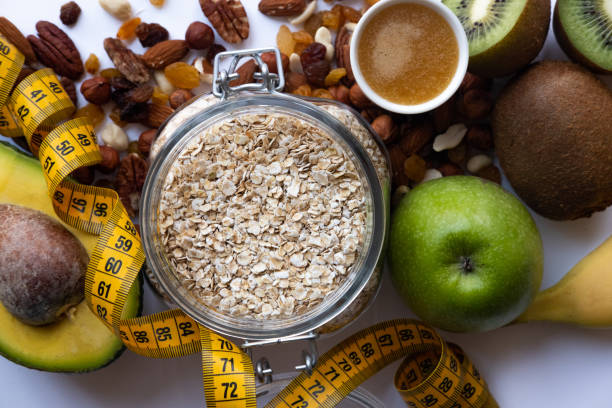Try whole grains anytime you can -You’ll get more nourishing fiber and abundant essential nutrients!
Whole grains contain more fiber, vitamins, phytonutrients, and minerals than refined grains. This makes whole grains superior for cereals, pasta, bread, and rice. Entire grains comprise three layers of seed: the bran rich in fiber and the starchy endosperm and the germ with a high concentration of nutrients. To make refined grains (like white flour), the nutritious germ and bran are taken from the grain, leaving behind a less healthy product.
Consuming whole grains regularly is associated with a lower chance of suffering from heart disease, high blood pressure, and Type 2 Diabetes. Consuming whole grains may aid in the loss of weight as well as maintenance, as their fiber content is high, which keeps you full and helps reduce your appetite.
Whole grains also contain various nutrients, such as multiple B vitamins. B vitamins assist your body in obtaining energy from food. They aid in the health of your heart and control mood, fight PMS-related symptoms, and can aid in slowing the pace of cognitive decline.
The vitamin E present in whole grains, as well as zinc and niacin, could improve eyesight, decrease your risk of developing cataracts and macular degeneration, and slow the process of vision loss. Zinc and vitamin E assist in keeping the appearance of your appearance healthy and beautiful, and zinc is essential in healthy hair.
Magnesium found in certain whole grains can benefit those suffering from migraines or PMS or are at risk of developing Type 2 diabetes and high blood pressure. Whole grains can also contain selenium, an antioxidant that can heal your skin and shield the skin from sun damage. Selenium is also an excellent preventative for skin cancers and arthritis.
If you have celiac disease, you should choose whole grains that don’t have any gluten. Wild or brown rice, buckwheat, corn, quinoa, and amaranth millet and buckwheat are all safe options (although it’s always recommended to study the labels on your products).

